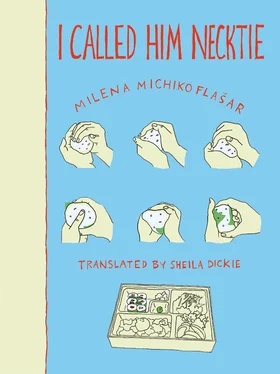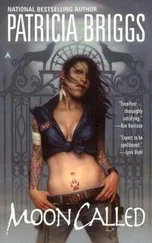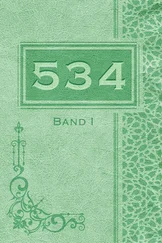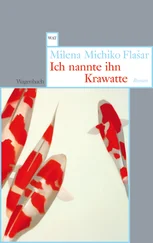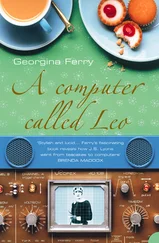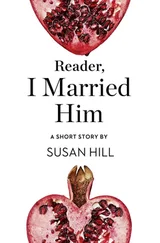67
And I must say: Avoidance was an easy exercise.
Although the Miyajimas were our immediate neighbors, years passed without my meeting one of them. The father, they whispered, was bedridden with an illness, and the mother went about her business at night. Whatever that meant, anyway she was very seldom seen, and then only hastily scurrying, disheveled hair over her forehead, laden with sacks and bags. It was rumored she was carrying contraband, then that she was mad, and that stuck: She was mad. Even when nobody could claim to have seen her, they claimed her madness was obvious in her face. You can see things like that, was the unanimous conclusion, you can see it without looking. Only the fact that Yukiko, the poor girl, as she was now labeled, was accorded some recognition when she won first place in a mathematics competition, but: Who knows whether that was right? Who knows whether that wasn’t a made-up story? One thing was certain: It was better not to have anything to do with the Miyajimas. And for me too that was the case, until fate, what I called a stupid accident at the time, led our paths to cross one last time.
I was sixteen. A new school year had begun. The names of the students were read out in class. I sat there in boredom, twirling a chewed pencil in my hand. Thirty others who were feeling just like me. The vacation, which had not been a vacation, had ended again, and we had the dark premonition that it would always be like that. That life, which was no life, was rushing inevitably to its end.
Fujiwara Rie!
Here!
Hayashi Daiichi!
Here!
Kugimoto Sakuya!
Here!
Miyajima Yukiko!
Here!
The pencil broke. I didn’t look up. She was here! Here! Here!
Oyama Haruki!
Here!
Taguchi Hiro!
Here!
Red thread, the thread of fate. Forever and ever.
Ueda Sakiko!
Here!
Yamamoto Aiko!
Here!
She’s just a back. A slim back. That’s all she is. Sometimes I’m homesick. Butterflies, yellow, blue, green. The dust on their wings. Black monk’s habit. The Heart Sutra. One note. I hate you. Do you hear? It’s all the same to me. Friends come and go. Can’t you go? Princess. I’m beholden to you. Pst, pst. Blank space. The sky is falling. I would like to tell you. I’m finished with you.
The tip of the pencil in the palm of my hand.
A fleeting pain.
68
Just as I had succeeded for years in avoiding the people who lived next door, so I would succeed in the classroom, I resolved to do it from day one, to make a wide berth around the desk three rows in front of me. After all there was plenty of room not to meet each other, and as I’ve already said: I had practice. Nothing was easier for me than to go past someone in the most inconsequential way. What I could not know was just one thing, that this determination would be tested on the very second day.
No idea who set things in motion. It began with a harmless aside: That one smells. I heard it. Clearly and distinctly: That one smells. Then silent finger-pointing, a wrinkling of noses. Yukiko’s voice, a whisper: Please don’t! More laughter: She smells like she’s got a fish under her skirt. Someone grabbed at her. I saw it. Clearly and distinctly: She shot back. What are you looking at, in my face. I looked away. I saw nothing. And so I saw nothing of anything on the third and the fourth, or the fifth and sixth, or any of the days that followed.
This smell, came the cry from gaping mouths, whoever smells must pay five thousand yen. What do you mean, you don’t have it? Tomorrow you’ll pay. Dammit, you smell like a pig. Oink-oink. A dead hamster smells better than you. Hey, math whiz! How do you divide an ox into a cow? What started as a harmless aside grew into a litany with gathering speed.
Yukiko could have used a friend.
Someone to speak up for her.
But I.
I had no voice. I didn’t join in the others’ talk, nor did I protest against it. The thing was to stay outside if inside the world was falling apart. On that morning, when Yukiko came in to the classroom, her desk had been switched, and turned around. There was a caricature of a grunting pig on the blackboard. It was lifting one leg. Her name was underneath. She wiped it off, stroke by stroke. Yukiko became Yuki. Yuki became nothing. With the damp sponge in her hand, she eventually turned around, with a searching look, settling on me. In it was a sweetness, the glow of long ago: I swear to you, I’ll dissolve into stardust. That’s how she looked at me. As if she wanted to tell me: I’ll dissolve.
69
If I had. If I were. There is nothing more depressing than the past conditional. The possibilities it indicates will never be fulfilled, and, despite that, or because of that, they determine the present reality. If I’d somehow intervened then, if I’d been in a position to do that then, I wouldn’t be sitting here today.
I left it to Yukiko to defend herself. Yet she did little more than simply stand still. A magic chalk circle, it got smaller and smaller. She resembled an animal playing dead. For a while it worked. But then the attackers gained the upper hand, and they wouldn’t stop until they had sniffed out her weakest points. A careless movement and they knew, that’s where they should keep advancing. The game was no longer a game, it was life and death. On the way home I did not see how she was pushed up against a wall, I did not see how they shook their fists at her in the dark passage, I did not see how her skirt slipped above her knee in the empty parking lot. I went on, a silent witness, as I had learned to be. If I intervened, at that time it was still a present conditional, a completely possible possibility, I would be the next in line, that was fairly certain. Better not to let anything come near me. Better to turn off here, before anyone sees me.
70
So now you know.
Yes.
And do you understand? That I…
…. you have said enough.
No, not enough. There’s more.
The tip of the cigarette glowed.
Today they’re doing overtime. He opened his eyes and seemed to be searching for a point on which to focus. Blinking, he looked first at me, then at the bar, at me again, then at the floor. The floorboards creaked, a drunk went astray on his way to the toilet. Aimlessly he stood between the tables, someone should have taken him by the arm. But he just stood there, a statue without sense or purpose. It’s such a shame, he babbled, a trumpet interrupted his words.
No, not enough, I said once more. But my voice sounded harsh. Perhaps, I thought, I should spare us both the end. Nearby someone was talking about fish and whether fish ever slept. Perhaps, I thought again, I should leave it at that. An old saying came to mind: It is hard to wake someone who is not asleep. The whole time the drunk stood in the middle of the room. The waiter ran around him, as though he were part of the furniture. He really was standing stock still now, you could believe he’d fallen asleep upright. Only when someone knocked into him did he sway gently, to and fro, then immediately stood motionless again. It was minutes before he finally began to move. Instead of going to the toilet he returned to his place and ordered another brandy.
I must finish it, I thought, that’s the least I can do.
There’s more, I heard myself say.
71
Someone found her, limbs twisted, on the playground. She had thrown herself from the fifth floor. Someone laid flowers there, where she had fallen. Wilting roses, carnations, chrysanthemums. On one of the accompanying notes it said: We mourn and are ashamed. Dear Yukiko. I put no words to paper. Any moment she would pop up behind the bushes and run back, her ponytail bobbing, backwards. Up to me. And further back. To walk between the graves. I ran off with a white sheet of paper in my hands. Perhaps, perhaps she would be waiting for me, there, by the temple. And we would sit in the shade of the bent pine and not let the wind pass between us.
Читать дальше
